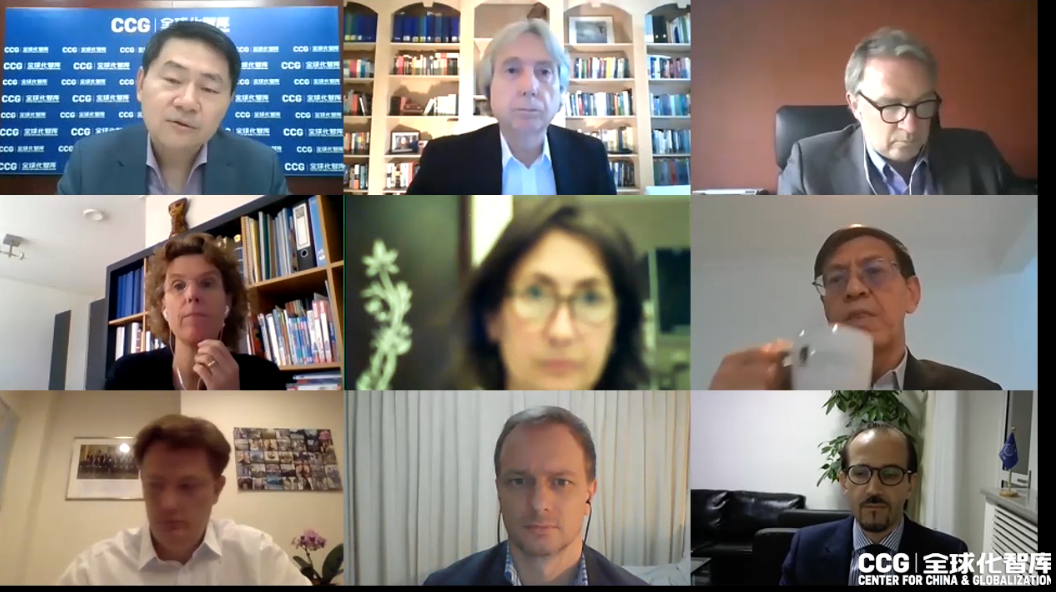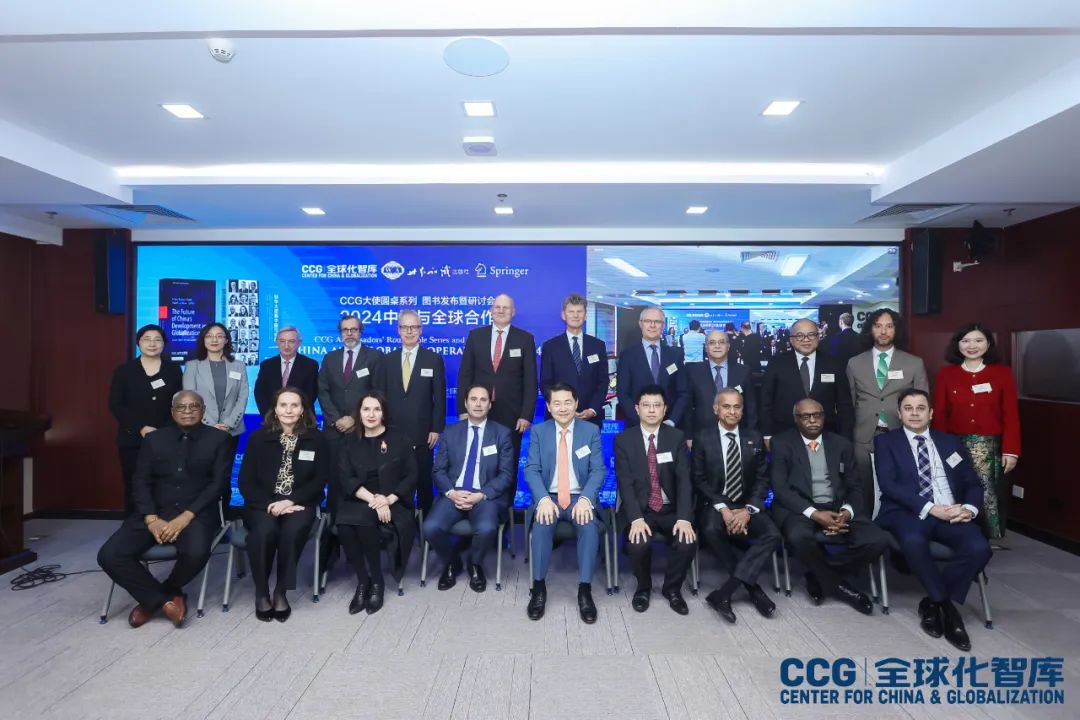CCG hosts webinar on food security during the COVID-19 pandemic
CCG | May 26 , 2020
The novel coronavirus has infected millions and killed hundreds of thousands of people around the world. It has resulted in a looming crisis for global food supply chains.
【Online Video】
CCG Video:
YouTube:
On May 18, the Center for China and Globalization (CCG) and the International Food Policy Research Institute (IFPRI) co-hosted a webinar titled “A Looming Food Crisis on Top of the Coronavirus Crisis: Roots, Solutions, and International Cooperation.” The event featured dialogue among senior representatives from the Asian Infrastructure Investment Bank (AIIB), the International Organization for Migration (IOM), the International Labor Organization (ILO), and American non-governmental organizations over key issues concerning the current situation, dilemmas and proposals for global cooperation in dealing with the emerging threats to global food security caused by COVID-19.

CCG President Wang Huiyao said that restrictions on food and agriculture products in some countries, as well as the barriers and restriction of mobility caused by the coronavirus pandemic, is aggravating the global food crisis. He said that the private sector, the potential of internet technology and multilateralism are key to solve these problems.

Rob Vos, director of IFPRI, said that global cooperation is the key to solve the economic crisis caused by the COVID-19 pandemic. He called for solidarity and stable operation of global value chains, cooperation among competitors, unimpeded trade channels, and proper responses to changing demands.
副行长兼秘书长艾德明爵士(Sir-Danny-Alexander).jpg)
Sir Danny Alexander, vice president and corporate secretary of AIIB, emphasized the particular impacts that low-income countries suffered from the coronavirus crisis and the need for resources from multilateral cooperation. He said that the AIIB has offered a special program with concessional loans to the lowest income countries, which not only brought support on urgent health issues, but also promotes long-term economic development.

Claire Courteille-Mulder, director of Country Office for China and Mongolia of ILO, said that there is a need to look at the specifics of the supply chain, particularly in the informal economy, and see how we could make it more sustainable from a social perspective. She added that making the supply chain more resilient and more sustainable would require small producers and retailers and general workers in the informal economy with better income security.
国际移民组织(联合国移民署)驻华代表.jpg)
Giuseppe Crocetti, chief of Mission of China and Mongolia of IOM, said that the spread of COVID-19 is projected to be not just a temporary crisis, but a profound disruption that will change human mobility patterns including seasonal labor migration for years to come.

Fan Shenggen, chair professor at China Agricultural University, stressed that women, children, smallholder farmers and migrants including people from rural to urban areas and from urban to rural areas, must be protected and included in the future global food system.

Carla Hilhorst, executive vice president for research and development at Unilever, highlighted that localization of supply chains does not lead to resilience, but leads to stockpiling and rises in food price. Hence, she said that cross-border resilience and robust supply systems are important, and therefore working together is crucial.

Matthew Kovac, executive director of Food Industry Asia (FIA), explained what multinational food companies have done in terms of mitigating against the impact COVID-19. He pointed out that many multinationals have set high safety standards in their manufacturing plants, and provided for their suppliers through this period with greater flexibility.

Photo of Jo Swinnen
Johan Swinnen, director-general of IFPRI, said that COVID-19 is causing a combination of economic recession and disruption of the food system. He added that the impact of COVID-19 on food supply chains is heterogeneous, being more complex and more nuanced than presented in the media narratives.
Recommended Articles
-

Views from Ambassadors to China — CCG New Book Launched
-
CCG holds a seminar on Chinese Returnees Studies and International People-to-People Exchanges
-
TEXT | Former WTO Director General Lamy Speaks at CCG and Dialogue with Wang Huiyao
-
CCG President Wang Huiyao in Dialogue with Arancha González
-
CCG Book Release | China Through European Eyes